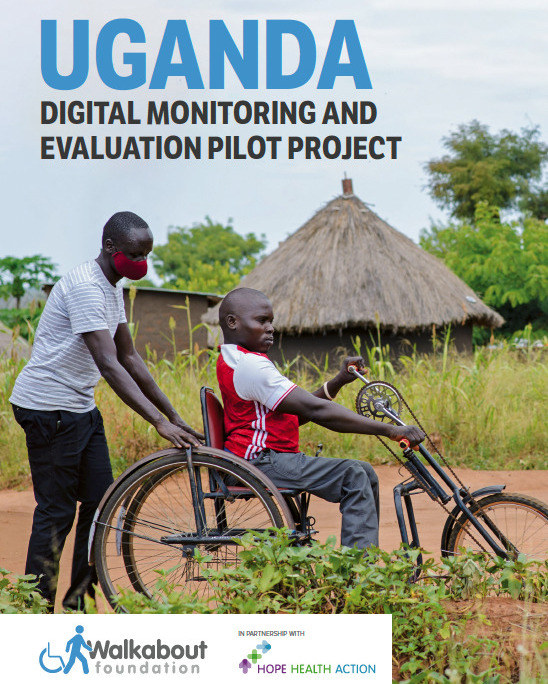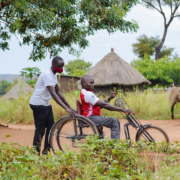Digital Monitoring and Evaluation Pilot Project

Two years ago, we launched our first-ever Digital Monitoring & Evaluation Pilot Project together with our partner, Hope Health Action, aiming to assess the impact of wheelchairs and tricycles on the quality of life of our beneficiaries. We worked together with a local team to co-design an online survey and follow up on past beneficiaries from northern Uganda, who received one of our wheelchairs or tricycles between 2017 and 2020. The project not only assessed the impact of our wheelchairs, but also identified any service gaps and need for repairs.
While measuring the impact of a wheelchair or trike on someone’s life, we looked at the quality of life and wellbeing, education, employment, social inclusion, independence, wheelchair and trike satisfaction and repairs. The data collected showed that wheelchairs and tricycles, as part of a holistic approach to disability-care provision, significantly contribute to improving the lives of people with mobility disabilities, despite the many challenges they still face. For example, based on this study, 90% of our beneficiaries said their quality of life had improved, with approximately 90% of adults and children saying they are more included in the community after receiving their wheelchair or tricycle.
There is still a lack of data across the international development sector that looks at the challenges faced by people with disabilities or the impact of providing assistive technology. We hope this report will shine a light on the importance of access to assistive technology, and the work that still needs to be done to improve the opportunities for people with mobility disabilities in developing countries.
Click below to read the full report.



